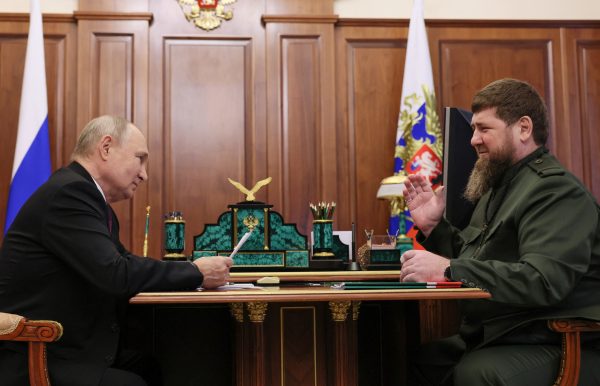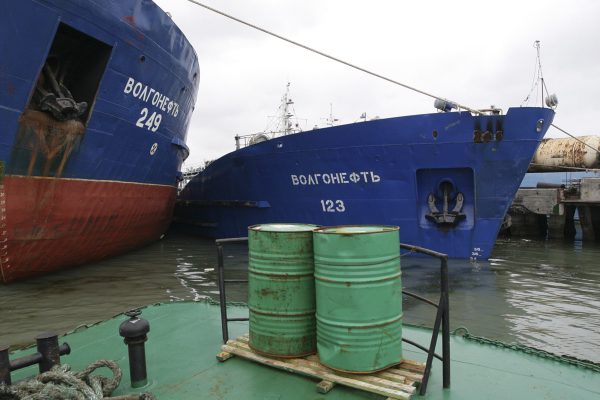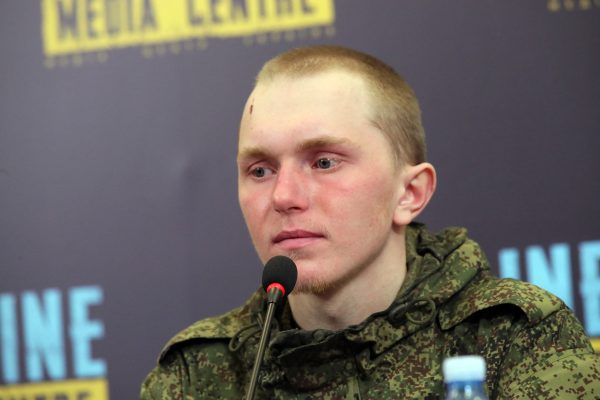Towards the end of last year, experts from the Institute of Economics of the Russian Academy of Sciences estimated that Russia faced a shortfall of nearly 5 million workers in 2023, which is already impeding economic growth. The total workforce is a little under 74 million.
With perhaps a million Russians, including many working-age men, having fled the country, with more than 300,000 dead or wounded in Ukraine, with more than a million men in the military, and a fertility rate of 1.5 — far below the so-called replacement rate of 2.1 — the country simply cannot meet its needs.
The head of the Central Bank is among those describing it as the country’s most serious problem, hardly surprising when unemployment is just 2.9% and the vacancy rate is 6.8%.
This scarcity is particularly pronounced in the manufacturing, construction, and transportation sectors. According to recruitment agencies and company management, the workforce deficit will worsen in 2024.
Beyond skilled professionals, Russia struggles to meet even basic labor demands, including those for military purposes. Increasingly, schoolchildren and students are being enlisted for war-related tasks. Just last week, a major investigation revealed how minors as young as 14 are involved in activities for the “Mayor’s Labor Unit” in Krasnoyarsk, weaving camouflage nets and preparing parcels for frontline needs.
In the town of Mozhgi, teenagers have joined the “Stockings for Stumps” campaign to provide legless ex-servicemen with coverings for their wounds.
Children have been enticed with the promise of extra credits for college admission. In Tatarstan meanwhile, college students are engaged in producing Shahed-designed Iranian drones. While these initiatives aim to instill a culture of war among youth, they also serve to fill the workforce void.
The shortage of qualified specialists cannot be remedied by enlisting schoolchildren and students. Official Russian media acknowledged in the summer that there was an acute shortage of doctors, estimated at nearly 26,500, with an additional deficit of 50,000 mid-level medical personnel. By the end of autumn, Health Minister Mikhail Murashko was compelled to acknowledge the problem. However, journalists highlight the lack of genuine data on healthcare personnel shortages as the Ministry of Health declined to disclose this information.
To tackle the staffing shortfall, Russia has embarked on a significant recruitment drive for doctors from African countries, often targeting those whom Soviet specialists once assisted during healthcare crises. Media outlets widely circulated the “success story” of a Sudanese doctor treating patients in Lytkarino, a Moscow suburb experiencing an exodus of medical professionals to the capital.
According to media reports, the number of such specialists in Russian clinics is increasing. African doctors invited to Russia are not required to validate their diplomas; instead, a declaration that education meets “Russian standards” suffices. The exact process of this recognition remains unclear, with no special examination conducted during the hiring process.
However, Alexander Saversky, the head of the League of Patient Advocates, has raised concerns that individuals from other cultures may struggle to understand Russian patients and may not be able to grasp the nuances of the language and mentality.
Denis Ivanov, Doctor of Medical Sciences, similarly questions whether an “African doctor can comprehend the intricacies of a Russian grandma’s psychology.” Critics are meanwhile outraged by the disappearance of domestic specialists and the lack of preventive measures to counter the workforce shortage.
Another group targeted for “replacement” by the Putin regime is the managerial elite. In his latest address, Vladimir Putin declared that “participants in special military operations should be regarded as Russia’s elite, participating in its governance and major projects.”
Veterans of the war of aggression in Ukraine should form a new leadership at home and “should assume leading positions in the education system, youth development, public associations, state-owned enterprises, business, public and municipal administration, and lead regions,” he said.
To this end, Putin announced the “Time of Heroes” program, open to veterans of special operations, soldiers, and officers. The program is aimed at “preparing highly qualified and competent managers from former military personnel for advancement to high-level managerial positions.”
The skills learned in Ukraine are not easily transferable to everyday society. Russian commanders and troops have been demolishing Ukrainian communities and engaging in extrajudicial executions, as well as abuse of their own comrades.
Whether war veterans will actually be able to assume significant positions in the Russian management system is open to question. However, the undeniable fact remains: the degradation of Russian society is blindingly obvious and Putin’s troops won’t be able to fix the profound problems it faces as a result of his rule.
Kseniya Kirillova is an analyst focused on Russian society, mentality, propaganda, and foreign policy. The author of numerous articles for CEPA and the Jamestown Foundation, and has also written for the Atlantic Council, Stratfor, and others.
Europe’s Edge is CEPA’s online journal covering critical topics on the foreign policy docket across Europe and North America. All opinions are those of the author and do not necessarily represent the position or views of the institutions they represent or the Center for European Policy Analysis.





